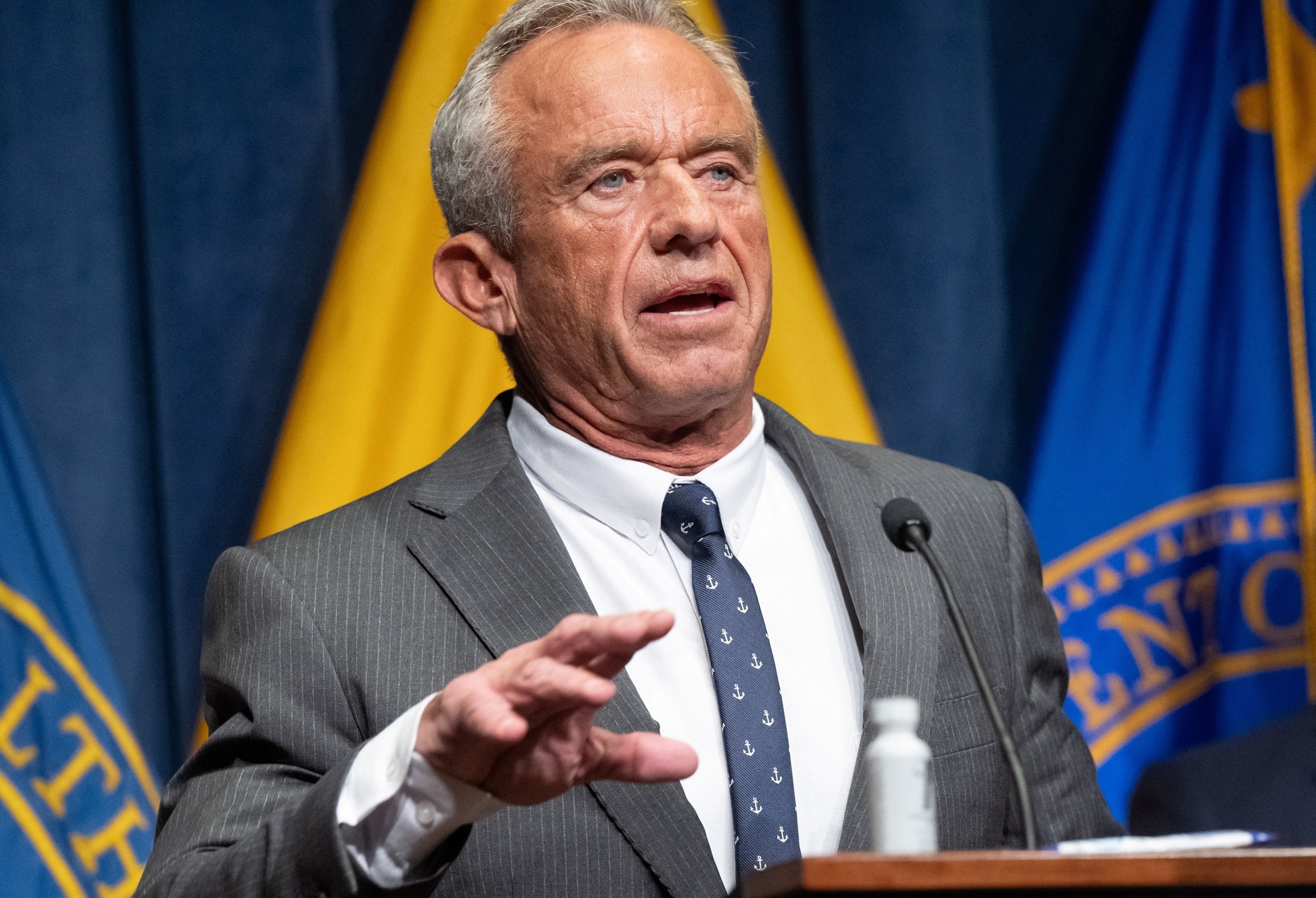Members Of Cdc Vaccine Panel Ousted By Rfk Jr. Say Committee Has 'lost Credibility'

The members of a federal vaccine advisory committee, who were removed by Health and Human Services Secretary Robert F. Kennedy Jr., are suggesting alternatives to vaccine policy in the U.S. because the panel has "lost credibility."
In early June, Kennedy dismissed all 17 sitting members of the Advisory Committee on Immunization Practices (ACIP), which advises the Centers for Disease Control and Prevention (CDC) on vaccine recommendations.
Kennedy replaced the group with his own, hand-selected members, many of whom had expressed skeptical views on vaccines.
Since then, the committee has recommended against flu vaccines containing thimerosal -- a preservative that has been falsely linked to autism -- has said the childhood immunization schedule will be studied and has cast doubt on whether newborns need the hepatitis B vaccine.
The members also expressed skepticism around the safety and efficacy of the COVID-19 vaccine, which Kennedy announced earlier this year will no longer be recommended for healthy children and healthy pregnant women.
In a commentary published Wednesday in the New England Journal of Medicine, the former members wrote that the rigorous process for recommending vaccines is "rapidly eroding."
Dr. Noel Brewer, a former ACIP member removed by Kennedy and a professor in the department of health behavior at the University of North Carolina Gillings School of Global Public Health, told ABC News that since the upheaval of the ACIP, vaccination has changed in the U.S. in a "fundamental" way and that the committee has "lost credibility."
"We no longer have a single authority that's trustworthy to tell us who should get vaccinated at what age," he said. "This is a change in vaccine policy that is unprecedented, and we felt it important to start thinking about what a future should look like, or what a future will look like."
"There is no good alternative to ACIP; the most that we could do is try to limit the damage," Brewer continued.
He said ACIP has lost credibility with health care providers, especially with the decision to cut COVID-19 vaccine recommendations, and that the recent ACIP meeting was disappointing to witness.
In the commentary, the first recommended step is to have professional organizations work together to "harmonize vaccine recommendations." Brewer said this is already happening, with professional societies meeting and establishing vaccination schedules.
The American Academy of Pediatrics will recommend pediatricians and parents follow its own immunization schedule, which it has published for decades. The American Academy of Family Physicians and the American College of Physicians will publish recommendations for adults and the Infectious Diseases Society of America will set a schedule for people who are immunocompromised.
Brewer said that while the recommendations will clarify what good health care is, it doesn't ensure that private insurers or the federal Vaccines for Children program will cover those vaccines.
The second recommendation is for an external auditor of the new ACIP recommendations.
"It's unclear how exactly that would play out, but some organizations would listen in on the ACIP meetings and, once they've concluded, look at the data and look at the decisions and see if they're reasonable," Brewer said. "Former ACIP members have taken on some of this role and will be commenting on the recent meeting."
The third recommendation is to have a parallel system that follows past ACIP practices, which Brewer said would consist of people with credentials in fields such as immunology, virology and vaccinology who would meet once a quarter or every four months to review data and generate recommendations.
Brewer said this system would be unlikely to succeed, however, due to the amount of funding it would cost and whether the CDC would be willing to share data before it's publicly available.
However, he said this does not solve the current problem that the committee is missing members who have expertise in child primary care and vaccine implementation.
"Those gaps were quite apparent at the last meeting," Brewer said. "They need to fill those gaps that will help credibility, but will not fully take care of the problem that the committee has tilted from being pro-vaccine to anti-vaccine, and that change complicates their roles as a recommending body."
In a statement to ABC News, an HHS spokesperson said the former panelists "have it wrong, just like their rubber-stamped decisions on COVID vaccines."
"Secretary Kennedy has restored public trust through his reconstitution of ACIP with highly credentialed medical doctors and public health experts committed to evidence-based medicine, gold standard science, and common sense," the statement said. "By replacing vaccine groupthink with a diversity of perspectives, Secretary Kennedy is strengthening the integrity of the advisory process guiding immunization policy in this country. Additionally, you can't claim them as anti-vaccine when they recommended them at their first meeting."
Popular Products
-
 Sevich Chebe Hair Loss Treatment Set
Sevich Chebe Hair Loss Treatment Set$73.99$50.78 -
 Super Fenugreek & Rosemary Hair Regro...
Super Fenugreek & Rosemary Hair Regro...$117.99$81.78 -
 Sevich Hair Keratin & Moroccan Oil Vi...
Sevich Hair Keratin & Moroccan Oil Vi...$34.99$23.78 -
 Sevich African Chebe Hair Treatment Set
Sevich African Chebe Hair Treatment Set$73.99$50.78 -
 Sevich Hair Growth Essence Spray
Sevich Hair Growth Essence Spray$28.99$19.78


